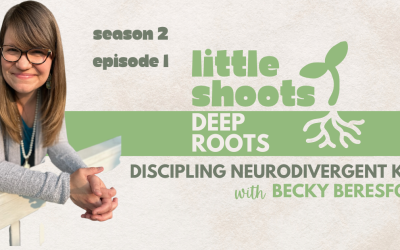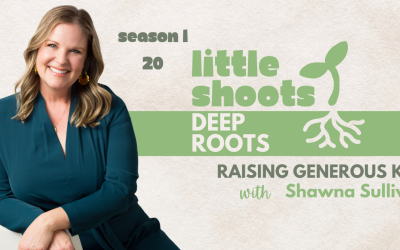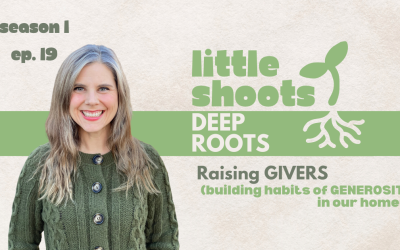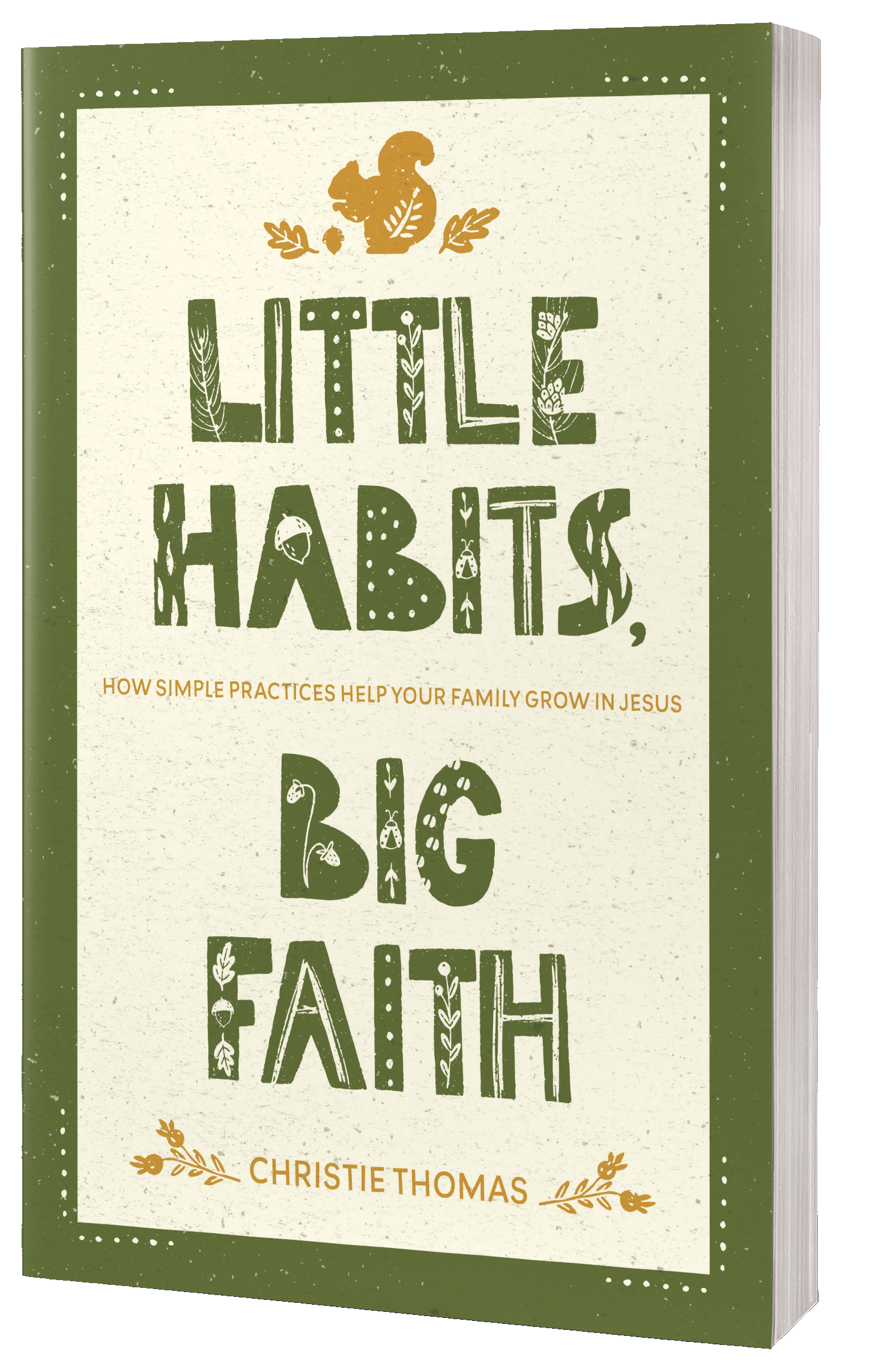Gratitude isn’t just a nice idea, it’s a powerful habit that can transform your family, your outlook, and even your brain.
In today’s episode of Little Shoots Deep Roots, we dive into how practicing intentional gratitude (whether through simple daily lists or creative family rituals) truly reframes challenges and brings us closer to God and one another. The real transformation happens when these small acts are modeled and repeated, turning thankfulness into a defining quality of your life and leadership.
Start simply, keep it real, and watch gratitude seep out of you and inspire those around you.
Here are my top 3 takeaways:
- Gratitude goes beyond good intentions: Jennifer highlighted how gratitude isn’t just a concept. It shapes both our spirit and our brains. Forming habits of thankfulness literally rewires us, making it easier to approach life with joy and resilience.
- Practical family rituals matter. Her family’s “Thanks Living Calendar” tradition (using Halloween candy as daily tokens of gratitude through November) is a fun, tangible way to help kids cultivate specific, genuine thankfulness before the busy holiday season.
- Modeling matters more than mandates: Kids learn gratitude when we practice it ourselves. Modeling intentional, specific gratitude (not just requiring polite “thank you’s”) gives our children the language and habits they need to grow hearts of thankfulness.
📚 FOLLOW-UP RESOURCES:
- Book: Little Habits, Big Faith by Christie Thomas
- Podcast: Living the Grace Life, with Jennifer Sakata
Subscribe on your favorite listening platform for practical tips, real parent interviews, and encouragement as we become faith gardeners together!
📝SUMMARY
As the host of Little Shoots Deep Roots, I have the joy of exploring faith habits with fellow gardeners who are seeking to grow deeper roots in their families. In our recent episode, I was joined by the vibrant Jennifer Sakata, host of Living the Grace Life, for a conversation centered around gratitude. Our candid discussion revealed not only practical ideas for nurturing thankfulness in our homes, but also the transformative impact gratitude has on our hearts and minds.
Gratitude is a concept we hear about often, especially in faith circles, but living it out in the messiness of real life is a different matter entirely. Jennifer shared how her ministry grew from personal need; she seeks real grace because she needs it as much as anyone else. I resonated with that deeply. My journey into cultivating faith habits didn’t begin from a place of expertise but from a place of longing and learning. As Jennifer put it, ministry often reflects what we need most ourselves.
We talked about gratitude as a spiritual practice: one that forms our spirit and reminds us not only who we are but whose we are. Jennifer drew parallels with grace, describing gratitude as our response to God’s welcoming love. I especially loved her insight that expressing gratitude to God is an act of drawing near, an invitation for His presence even in hard circumstances. Our conversation touched on Colossians 3 and the apostle Paul’s encouragement to let thankfulness permeate our lives.
But gratitude isn’t just spiritual; it’s also scientific. Jennifer explained neuroplasticity, the way our brains change and grow through repeated practice. When we cultivate gratitude, our brains release dopamine, serotonin, and oxytocin, the “feel-good” hormones created by God for our wellbeing. The links between gratitude and improved mental health are well-documented, and it was encouraging to see how our faith practices can align with discoveries in neuroscience.
We both agreed that gratitude is a habit formed one day at a time. Jennifer’s story reflected this beautifully. Inspired by Ann Voskamp’s “1000 Gifts,” she began numbering her gratitude lists, seeing them eventually stretch into the hundreds. Looking back over those lists, she realized God was actively shaping her heart. Jennifer and her husband also make a regular practice of sharing three specific things they’re thankful for at the end of each day. I found it refreshing that the steps don’t have to be dramatic or perfect. Sometimes a small tweak is all that’s needed to make a habit fit into real life.
One favorite tradition Jennifer’s family developed centers around a calendar of gratitude in November (aka, the ThanksLiving calendar).
After Halloween, her children select thirty pieces of candy, which are taped to a homemade calendar. Each day, before enjoying the treat, they write a specific, non-repetitive thanksgiving. This cleverly combines the excitement of candy with the intentionality of gratitude, and, as Jennifer observed, sets the tone for a more mindful, generous approach to the Christmas season. Their calendars aren’t always completed flawlessly, but as she wisely noted, “gratitude is never lost, the impact is never wasted.”
Of course, nurturing gratitude in children is its own challenge. Jennifer was honest that you cannot force gratitude simply by instructing children to “say thank you.”
Heartfelt thankfulness comes from slowing down, noting blessings, and intentionally recognizing the kindness of God or others. Their family also learned about tithing and stewardship, discovering gratitude in the ability to give and save.
We didn’t shy away from obstacles; entitlement and complaining visit every home, and adults aren’t immune. Jennifer described how delaying gratification and saving for important purchases helped her sons become more thankful for what they have. She also shared how noticing beauty in the world, like sunsets or unique clouds, trained her sons to express awe and gratitude organically.
If you’re looking to turn your family’s culture from one of grumbling to one of gratitude, Jennifer’s advice is simple yet powerful:
- start with yourself. Model thankfulness, share your own lists, and give your children language for gratitude.
- Consider experimenting! Try a thirty-day “thanksliving” calendar or carve out time for daily thanksgiving.
- And if you stumble, give yourself grace and try again.
This episode reminded me (and I hope it encourages you) that cultivating gratitude is a journey. We are not graduates of grace or gratitude; we are fellow gardeners, growing together with messy hands and hopeful hearts.
Little habits, over time, yield the deepest roots.









0 Comments